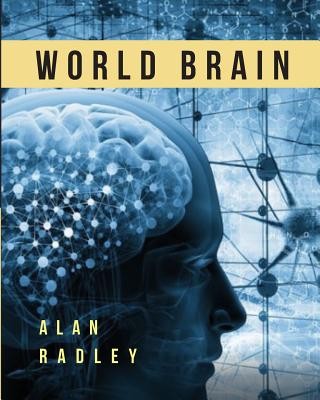
- We will send in 10–14 business days.
- Author: Alan Radley
- Publisher: CreateSpace Independent Publishing Platform
- Year: 2018
- Pages: 402
- ISBN-10: 198762730X
- ISBN-13: 9781987627305
- Format: 20.3 x 25.4 x 2.1 cm, minkšti viršeliai
- Language: English
- SAVE -10% with code: EXTRA
Reviews
Description
In World Brain, Alan Radley looks at the computer not as a tool, or as a bicycle-for-the-mind, but simply as self. He argues that humans are becoming so enmeshed with the computer, in terms of how we think, act and communicate; that soon it may no longer be possible to identify where the self ends, and the computer begins, and vice-versa. Predicted by some, are marvellous benefits for technology; in terms of enhancements to our social, creative and personal lives. But already clear, is that not all of the associated problems lie in the realm of speculation. One example, is that the Internet is moving ever further away from the free and open system as foreseen by its original designers; whereby citizens are routinely censored, controlled, hacked and/or spied upon. Other questions arise; such as who builds today's systems, and in what sense(s) are they useful, humane or democratic? Explored are human-friendly designs for the computers of tomorrow, whereby the wishes, plans and actions of society may be aligned to benefit all. Contains 1000 illustrations www.alanradley.com
EXTRA 10 % discount with code: EXTRA
The promotion ends in 23d.06:35:56
The discount code is valid when purchasing from 10 €. Discounts do not stack.
- Author: Alan Radley
- Publisher: CreateSpace Independent Publishing Platform
- Year: 2018
- Pages: 402
- ISBN-10: 198762730X
- ISBN-13: 9781987627305
- Format: 20.3 x 25.4 x 2.1 cm, minkšti viršeliai
- Language: English English
In World Brain, Alan Radley looks at the computer not as a tool, or as a bicycle-for-the-mind, but simply as self. He argues that humans are becoming so enmeshed with the computer, in terms of how we think, act and communicate; that soon it may no longer be possible to identify where the self ends, and the computer begins, and vice-versa. Predicted by some, are marvellous benefits for technology; in terms of enhancements to our social, creative and personal lives. But already clear, is that not all of the associated problems lie in the realm of speculation. One example, is that the Internet is moving ever further away from the free and open system as foreseen by its original designers; whereby citizens are routinely censored, controlled, hacked and/or spied upon. Other questions arise; such as who builds today's systems, and in what sense(s) are they useful, humane or democratic? Explored are human-friendly designs for the computers of tomorrow, whereby the wishes, plans and actions of society may be aligned to benefit all. Contains 1000 illustrations www.alanradley.com


Reviews